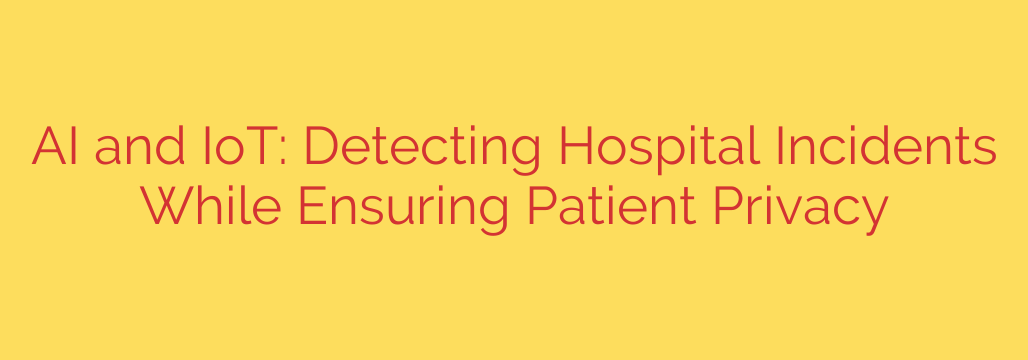
Healthcare environments face constant challenges, from ensuring patient safety to managing complex operations. A significant area of concern is the occurrence of incidents, which can range from patient falls to equipment malfunctions. Effectively detecting these events in real-time is crucial for prompt intervention and improving patient outcomes. However, achieving this often involves deploying surveillance systems that raise serious patient privacy concerns.
The convergence of Artificial Intelligence (AI) and the Internet of Things (IoT) offers a powerful solution. IoT devices, such as smart sensors, cameras, and wearables, can collect vast amounts of data from various points within a hospital. AI algorithms can then process this data to identify patterns and anomalies indicative of an incident. For instance, AI can analyze video feeds from patient rooms or hallways to detect a fall, without requiring constant human monitoring. Similarly, sensors on medical equipment can alert staff to potential issues before they escalate.
The key to making this technology work in healthcare lies in addressing the privacy challenge. Instead of simply recording and storing sensitive video or audio, AI can be designed to perform analysis at the edge, directly on the device or a local server, processing data into non-identifiable alerts. For example, an AI system might detect the motion associated with a fall and send an anonymous alert, rather than storing the video footage itself. Techniques like data anonymization, differential privacy, and federated learning allow AI models to learn from data distributed across devices or locations without ever centralizing or exposing raw, sensitive information. Secure data transmission and stringent access controls are also essential layers of protection.
Implementing AI and IoT for incident detection brings numerous benefits: faster response times, proactive intervention, reduced workload for staff (allowing them to focus on patient care), and ultimately, a safer environment. By focusing on detecting events and patterns using privacy-preserving AI techniques, hospitals can leverage the power of these technologies to enhance safety without compromising the fundamental right to patient confidentiality. Building trust through transparent data practices and robust cybersecurity measures is paramount for the successful and ethical deployment of AI-powered incident detection systems in healthcare.
Source: https://cloud.google.com/blog/topics/healthcare-life-sciences/detecting-hospital-incidents-with-ai-without-compromising-patient-privacy/








